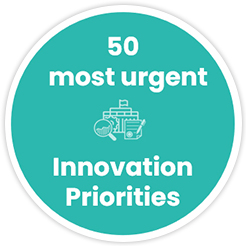-
Sustainable Energy System for Achieving Novel Carbon Neutral Energy Communities (SUSTENANCE)
Project location: India
Main involved partners: IIT Bombay (Indian Coordinator); Aalborg University Denmark (EU Coordinator); Indian Partners (IISC Bangalore, IIT Delhi, IIT Kharagpur, NIT Trichy, NIT Silchar, VNIT Nagpur, MNNIT Allahabad, Gram Oorja); Other EU Partners (University of Twente, Saxion University of Applied Science, The Institute of Fluid-Flow Machinery of the Polish Academy of Sciences, Skanderborg Kommune, Neogrid, Aura Energi, Energa-Operator SA, Stay-ON Energy Management, Aura Energi)
-

Starting Year-Ending Year
2021-2024
-

Funding Scheme Type
Co-funded
-

Project Budget
1.68 M€
Project short description
The SUSTENANCE project aims to develop and demonstrate sustainable multi-energy vector based clean local energy system. This project focuses on the development of smart technological concepts enabling a green transition of energy systems with a higher share of local renewable energy.
The project includes 3 demonstration sites in India and 3 in Europe. The main goals of the project include decarbonisation of local energy systems via optimal integration of locally available renewables, integration of energy systems for local communities, technical benchmarking and solutions matched with viable business models tailored to the different challenges and actors identified in each country, evaluation of solutions from the demonstration sites for replicability across India, Europe & worldwide, and emphasis on user involvement, including the identification of the conditions and socio-economic characteristics behind the willingness to participate.
 Pillar 1
Pillar 1Affordable and
Reliable VRE
 Pillar 2
Pillar 2System Flexibility
and Market Design
 Pillar 3
Pillar 3Data and Digitalisation
for System Integration

- 1.3.3
- 2.4.1
- 2.7.11
 Pillar 1
Pillar 1Affordable and
Reliable VRE
-
T1.1 - Novel Photovoltaic
-
T1.2 - Offshore Wind Power
-
T1.3 - Integrated Renewable Energy
1.3.3 -
T1.4 - Off-grid systems
-
T1.5 - Energy Storage Suppy Chain, Recycle and Reuse
 Pillar 2
Pillar 2System Flexibility
and Market Design
-
T1.6 - Technologies for System Stability
-
T2.1 - Flexible Generation
-
T2.2 - Grid Flexibility
-
T2.3 - System Stability and Flexible Operations
-
T2.4 - Energy Storage lntegration
2.4.1 -
T2.5 - Demand-side and EV Flexibility
-
T2.6 - Flexible Systems Planning
-
T2.7 - Markets, Busines Models and Regulatory Framework
2.7.11
 Pillar 3
Pillar 3Data and Digitalisation
for System Integration
-
T2.8 - Flexibility from Sector Integration
-
T3.1 - Standards for Interoperability
-
T3.2 - Secure and Resilient Digital Energy Systems
-
T3.3 - Integrated Solutions

